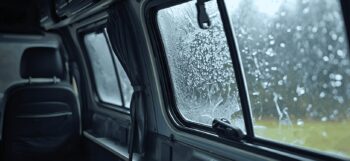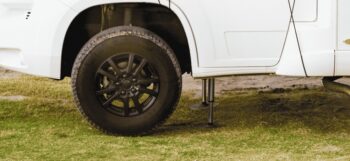Winter can be tough on motorhomes. Whether you plan to store your motorhome over the colder months or continue to take it on road trips, proper winter preparation is essential.
Failing to winterise your motorhome can lead to costly repairs, such as burst pipes, battery failure, and engine issues. By taking time to prepare your vehicle, you can avoid potential headaches and make sure your motorhome is ready for whatever the winter months throws at it.
In this article, we’ll cover what we think you should know about winterising your motorhome, preparing your motorhome for winter travel, and performing important winter motorhome checks.
Whether you're putting your motorhome into storage until spring or a die-hard camper choosing to brave the cold, these tips will help to keep your motorhome in good condition.
Winterising your motorhome in preparation for storage
If you’re putting your motorhome into hibernation for the winter, the key is to ensure that it’s protected from the elements. Proper preparation will help prevent damage caused by freezing temperatures, condensation, and general lack of use. Follow these pre-storage steps before you say goodbye to your motorhome for the winter.
Drain your water system
Freezing temperatures can cause serious damage to your motorhome’s water systems if not managed correctly. Water expands when it freezes, which can cause pipes, tanks, and even the boiler to crack, so it’ll essential to make sure these are drained of water, before your motorhome goes into storage.
Our infographic below shows steps to take to drain your water system:
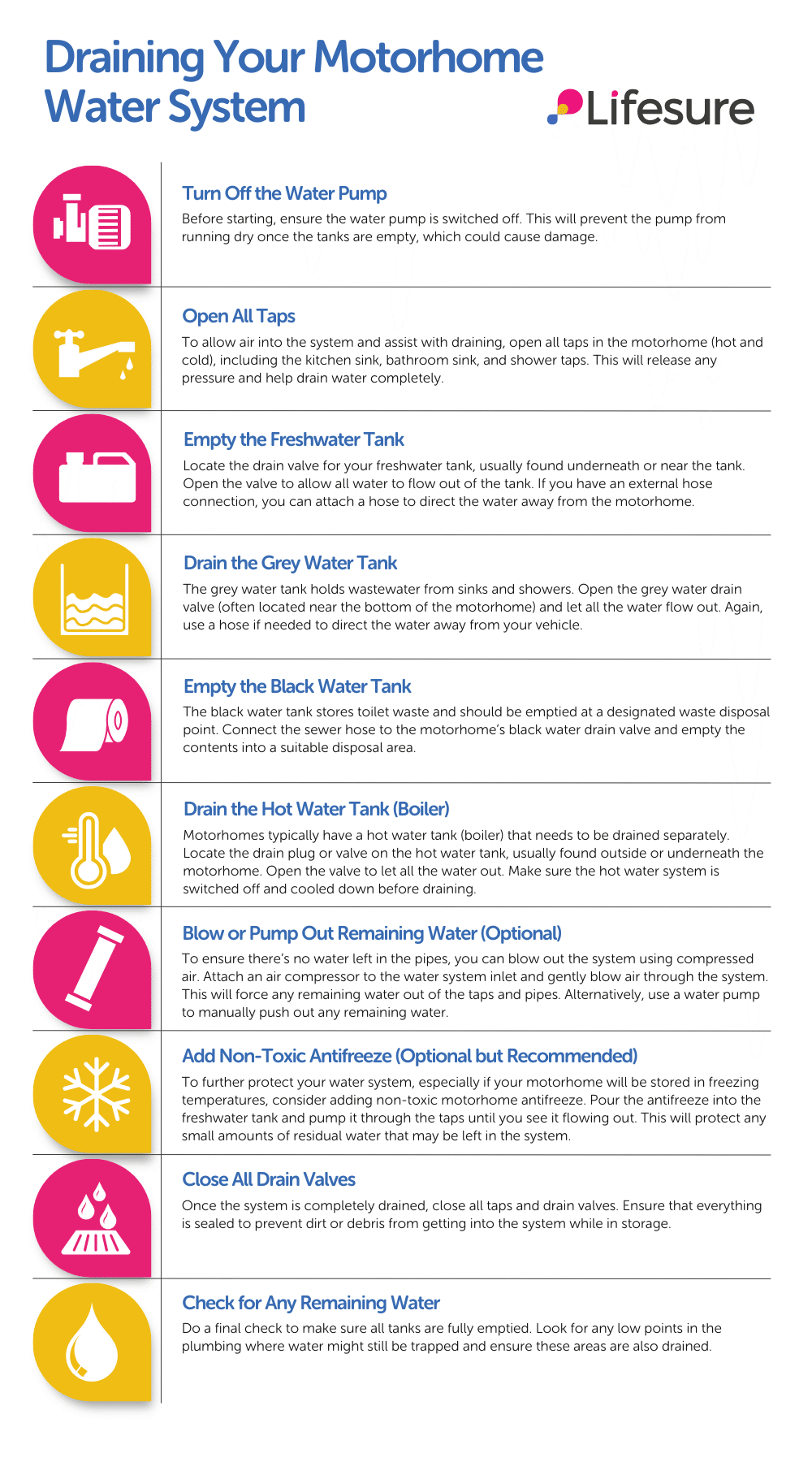
Battery Care for Storage
One crucial aspect of winterising your motorhome is ensuring both your leisure battery and starter battery are well cared for during the winter.
Cold temperatures can negatively affect battery performance, reducing their capacity and making it harder to start your motorhome or power your leisure systems. In winter, batteries also drain faster, especially if your motorhome is not connected to an external power source.
Proper maintenance can make a significant difference in extending battery life, avoiding unexpected failures, and ensuring your motorhome is ready to hit the road again come spring.
Leisure Battery vs. Starter Battery
Before we cover winter care tips, it’s important to know the difference between your motorhome's leisure and starter batteries:
Leisure Battery: Powers the motorhome's electrical systems, such as lights, appliances, and devices, when the engine is off. It’s designed for a slow, steady discharge over time.
Starter Battery: Provides the initial burst of power to start the engine. It’s designed to give a high current over a short period.
While they serve different purposes, both need special attention in the winter to prevent failure.
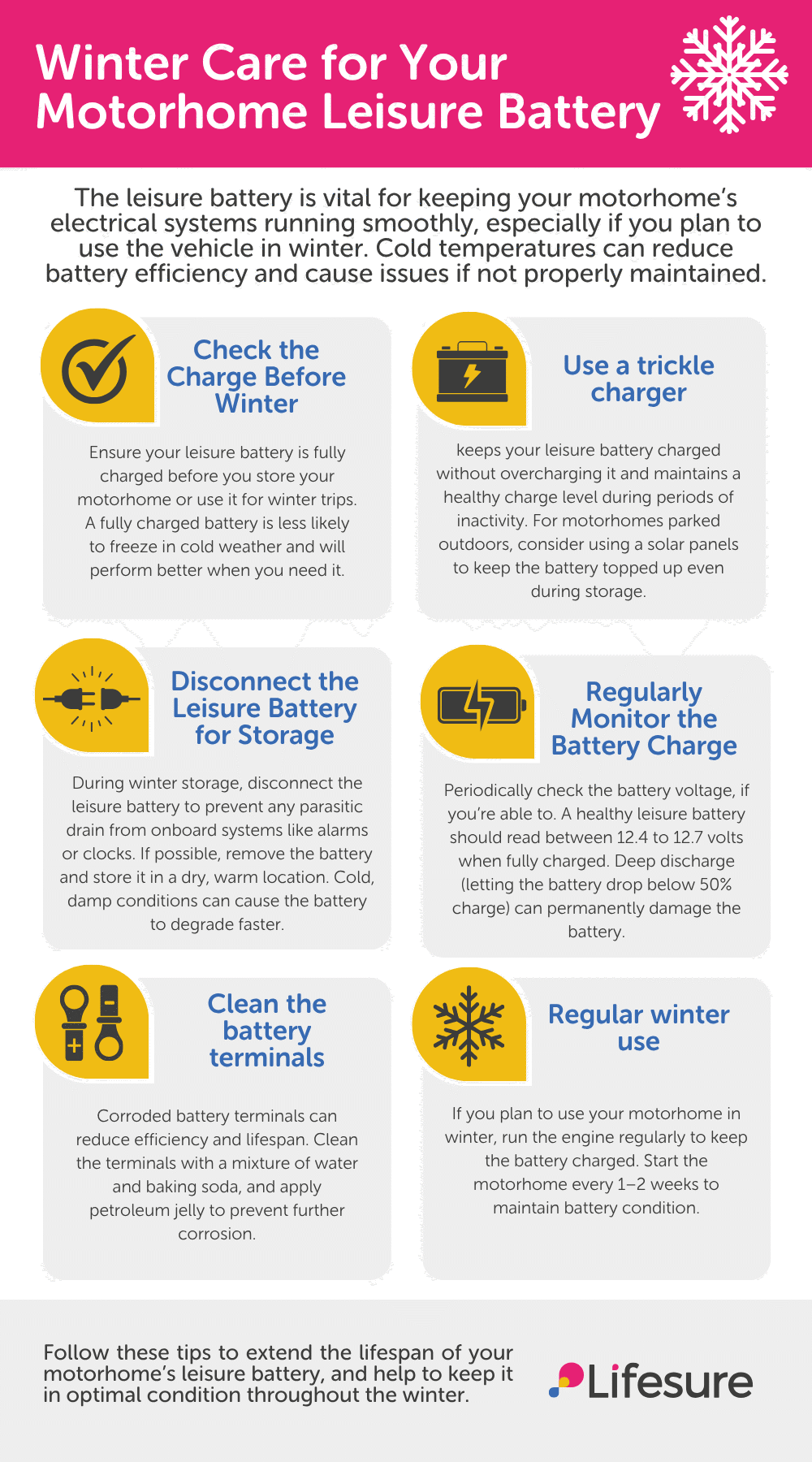
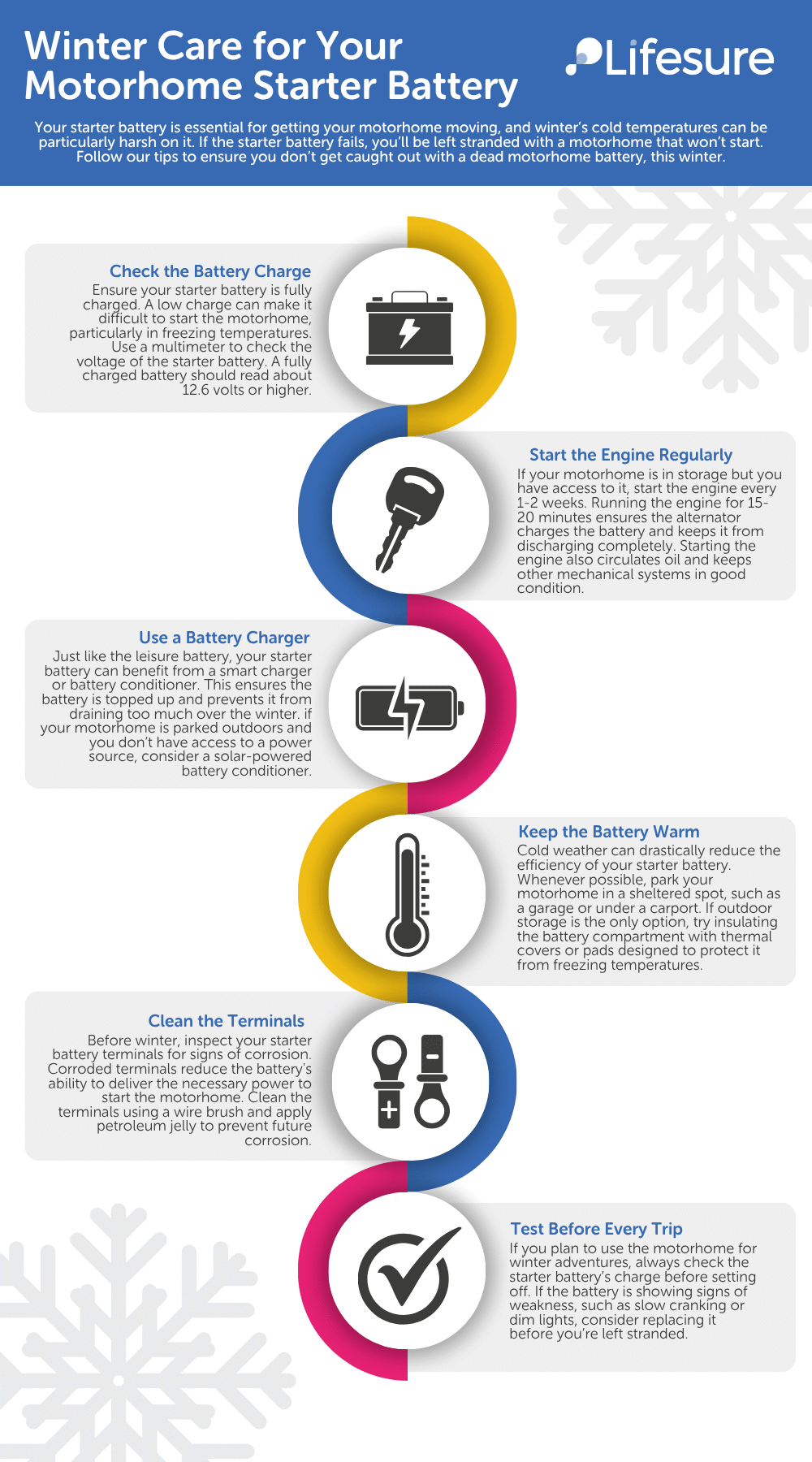
Insulation and sealing for storage
Even though you won’t be using your motorhome, proper insulation and sealing are still important, while it is in storage. Moisture can build up around poorly sealed areas, leading to damp and mould.
Inspect doors, windows and rooflight seals for cracks and other damage. Be sure to replace or repair any problem areas before storing your motorhome to prevent water ingress. Good airflow is also essential in preventing damp. Consider using moisture absorbers or leaving vents open to keep the air moving. If you have external air vents, you can install vent covers or insect screens. These accessories allow you to leave vents open without letting in pests or weather elements.
Please note: while leaving a window open can seem like an obvious way to get some air flowing through your motorhome, it can potentially invalidate your insurance. Most insurance policies require your motorhome to be securely locked when not in use. Leaving a window open, even slightly, could be seen as a security risk, increasing the chance of theft or vandalism. Insurance providers may also not cover damages caused by weather (rain, snow, or wind) entering through an open window. If water gets inside and causes damage, mould, or rust, insurers could argue that it was preventable and refuse to pay for repairs.
Protecting the exterior
Winter elements can be harsh on motorhome exteriors, causing rust, corrosion, and paint damage.
If your motorhome is being stored at an outdoor storge facility, cleaning it thoroughly beforehand is advisable. A coat of wax can help to protect the paintwork from moisture and frost. You can also invest in a high-quality, breathable motorhome cover to provide a protective barrier against rain, snow, and hail. This can help prevent water damage, corrosion, and the build-up of mould and mildew inside your motorhome. Avoid plastic sheeting or tarps, which are not breathable materials and can trap moisture underneath, causing rust and mould to form.
Tyre care in storage
Motorhome tyres can suffer from flat spots when left stationary for long periods of time.
Flat spots occur when the weight of the vehicle remains on the same area of the tyre for too long. Cold temperatures exacerbate the problem because tyre rubber becomes stiffer, making it harder for the tyres to regain their shape once flat spots have formed. Driving on tyres with flat spots can result in a bumpy ride and potentially cause long-term damage to the structure of the tyre.
Even while in storage, it’s important to check motorhome tyre pressure, as under-inflated tyres are more prone to flat spots and cracking. If the tyres have lost pressure, inflate them to the manufacturer’s recommended PSI.
Some motorhome owners choose to slightly over-inflate tyres before storage to account for the natural loss of pressure during winter. However, it’s important not over-inflating too much, as this too can lead to tyre deformation. If possible, park your motorhome on tyre savers or wooden boards to take the weight off the tyres.
For more information on motorhome tyre care, read How Often Does My Motorhome Tyre Pressure Need To Be Checked?
Winterising your motorhome for continued use
If you're planning to use your motorhome during the winter months, extra precautions are necessary to ensure you stay safe and comfortable, while you’re out on your adventures. Winter weather can be unpredictable, and your motorhome needs to be ready for freezing temperatures, snow, and ice.
Water system precautions
Using your motorhome's water system during the winter is possible, but it requires extra care to prevent pipes from freezing.
If your motorhome isn’t already fitted with a wintering kit, consider using foam insulation or heat tape to wrap your water pipes, to prevent them from freezing during cold spells. Keeping your motorhome’s boiler on a low setting, even when you’re not using the water system, can also help to stop pipes from freezing. Keep an eye on the weather when you’re out in your travels. If temperatures are expected to drop below 0°c overnight, consider draining the system before you go to bed, to prevent damage.
Heating system check
Your heating system will be your best friend during winter outings , so it’s vital to make sure it’s in good working order before you hit the road.
Test your heating system well ahead of the winter months, in to ensure it’s working properly. If you use a gas or diesel heater, check that the fuel supply is steady, and the system is free from blockages. If you're staying at a campsite with electric hookups, bringing an electric heater can save your gas and provide a backup source of heat.
Insulating the interior
No-one likes feeling cold, so keeping warm inside your motorhome is key to enjoyable winter trips.
While your heating system does most of the heavy lifting, you can make things more comfortable with extra insulation.
Invest in thermal blinds or covers for your windows to trap heat inside your motorhome. Thermal blinds can also be used to help to prevent condensation, while carpets or insulating mats can be useful for covering cold floors and keep your feet warm.
Tyre and engine maintenance
Winter weather puts extra strain on motorhome engines and tyres, so regular checks are crucial.
As previously mentioned, cold temperatures can cause tyre pressure to drop, and this can reduce your motorhomes grip on icy roads. Be sure to check tyre pressure before every trip and adjust accordingly.
Thorough engine checks are essential for safe and efficient driving in cold conditions. Start by getting a qualified mechanic to check your antifreeze levels to prevent the engine from freezing.
Next, inspect your engine oil. Cold weather can thicken oil, so using a lower viscosity oil like 5W-30 helps to ensure smoother starts on cold days. Always check the oil level and top it up if necessary. You can learn more about oil viscosity, here.
Don’t forget to check your brake fluid. Brake systems can be affected by cold temperatures and moisture buildup, so make sure the fluid level is correct and free of contamination. If it’s been a while, consider replacing it to avoid any issues during your journey.
Ensure your starter and leisure batteries are in good condition. Cold weather drains battery power faster, so check the charge and electrolyte levels if applicable, and the batteries are fully charged before setting off. Lastly, for diesel vehicles, add a winter fuel additive to prevent fuel gelling in low temperatures and keep the tank full to reduce condensation buildup.
Winter driving safety
Winter conditions can make driving more hazardous, so always be prepared for snow, ice, and rain.
In addition to a warning triangle, pack an emergency kit comprising essentials like blankets, a torch, food and water, a shovel, and a first aid kit. You may also want to carry extra fuel if you are travelling to a remote area. If you plan to travel in areas with heavy snow, consider packing a set of snow chains and practice fitting them before you need them. Although snow chains aren’t a legal requirement in the UK, they can improve tyre traction by gripping the road surface, reducing the likelihood of skidding or losing control on slippery terrain. They offer better stability when driving up or down steep, snow-covered inclines, which is essential in hilly or mountainous areas. You can check the requirement for use of snow chains in other countries, here.
Essential winter motorhome checks for continued use
Whether you're storing your motorhome or using it throughout winter, these key checks will help keep your motorhome in top condition:
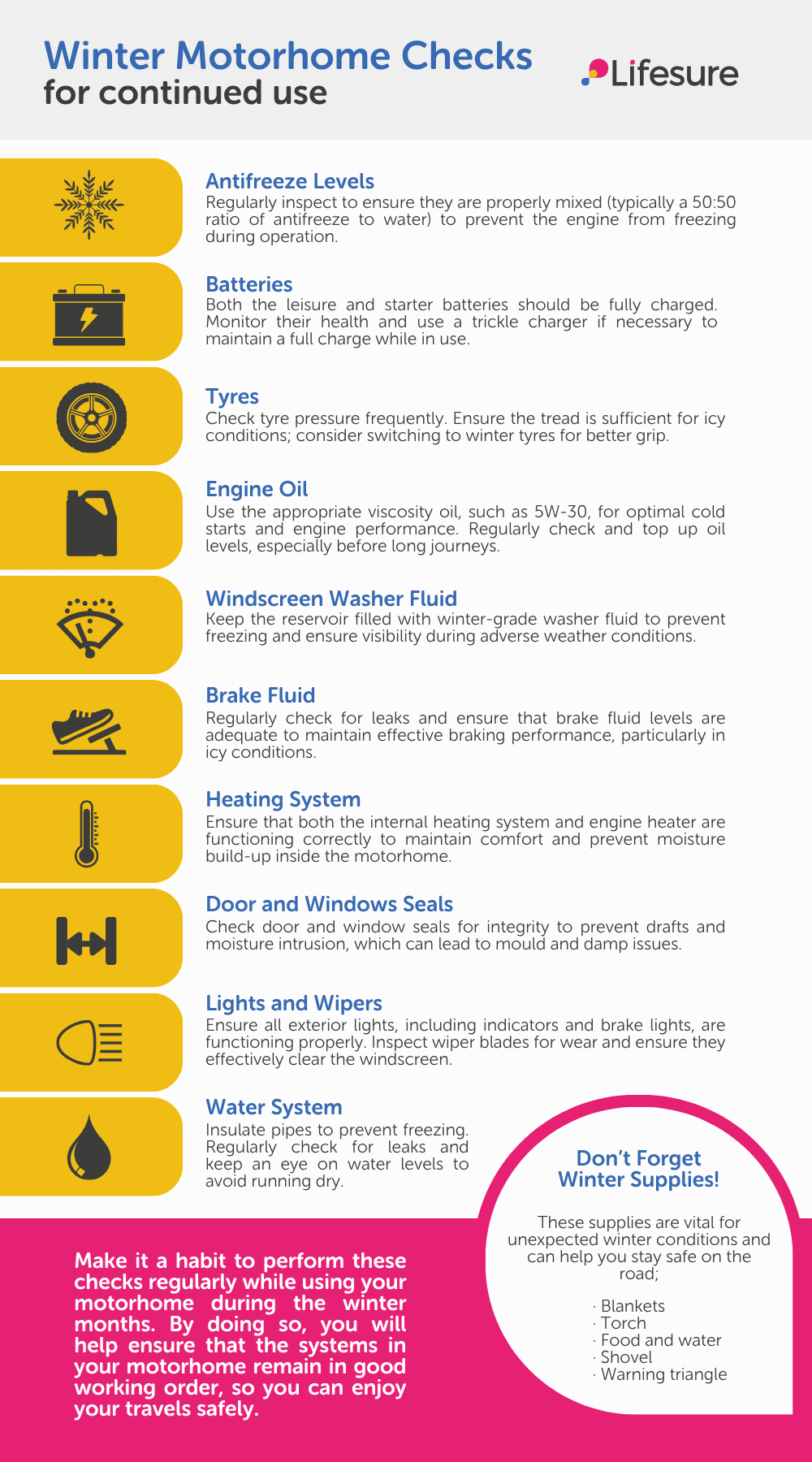
RAC Motorhome breakdown insurance to keep you on the move
Our partnership with the RAC means that you can take out Lifesure motorhome insurance and comprehensive breakdown cover, at the same time. Keeping everything under one roof can save you time so you get on with doing more of the things you enjoy – knowing you’ve got breakdown cover in place, should you need it.
With the RAC Motorhome breakdown cover* you can benefit from:
- Unlimited call outs
- Free roadside labour
- No call out fee
- Unlimited roadside repair time and misfuel cover, as standard.
*Terms and conditions, limitations, exclusions and acceptance criteria applies. *RAC motorhome breakdown insurance policy enhancement can be added to your main motorhome insurance policy for an additional fee. Mid-term policy adjustments are also subject to additional administration charges.
Adding this optional extra to you Lifesure motorhome insurance can offer additional peace of mind that you won’t get stuck out in the cold, should the worst happen.
For more information visit https://www.lifesure.co.uk/personal-insurance/motorhome-breakdown-insurance or speak to one of our friendly agents on 01480 402 460.
Disclaimer: The sole purpose of this article is to provide guidance on the issues covered. This article is not intended to give legal advice, and, accordingly, it should not be relied upon. It should not be regarded as a comprehensive statement of the law and/or market practice in this area. We make no claims as to the completeness or accuracy of the information contained herein or in the links which were live at the date of publication. You should not act upon (or should refrain from acting upon) information in this publication without first seeking specific legal and/or specialist advice. Arthur J. Gallagher Insurance Brokers Limited trading as Lifesure accepts no liability for any inaccuracy, omission or mistake in this publication, nor will we be responsible for any loss which may be suffered as a result of any person relying on the information contained herein.
FP1529-2025







